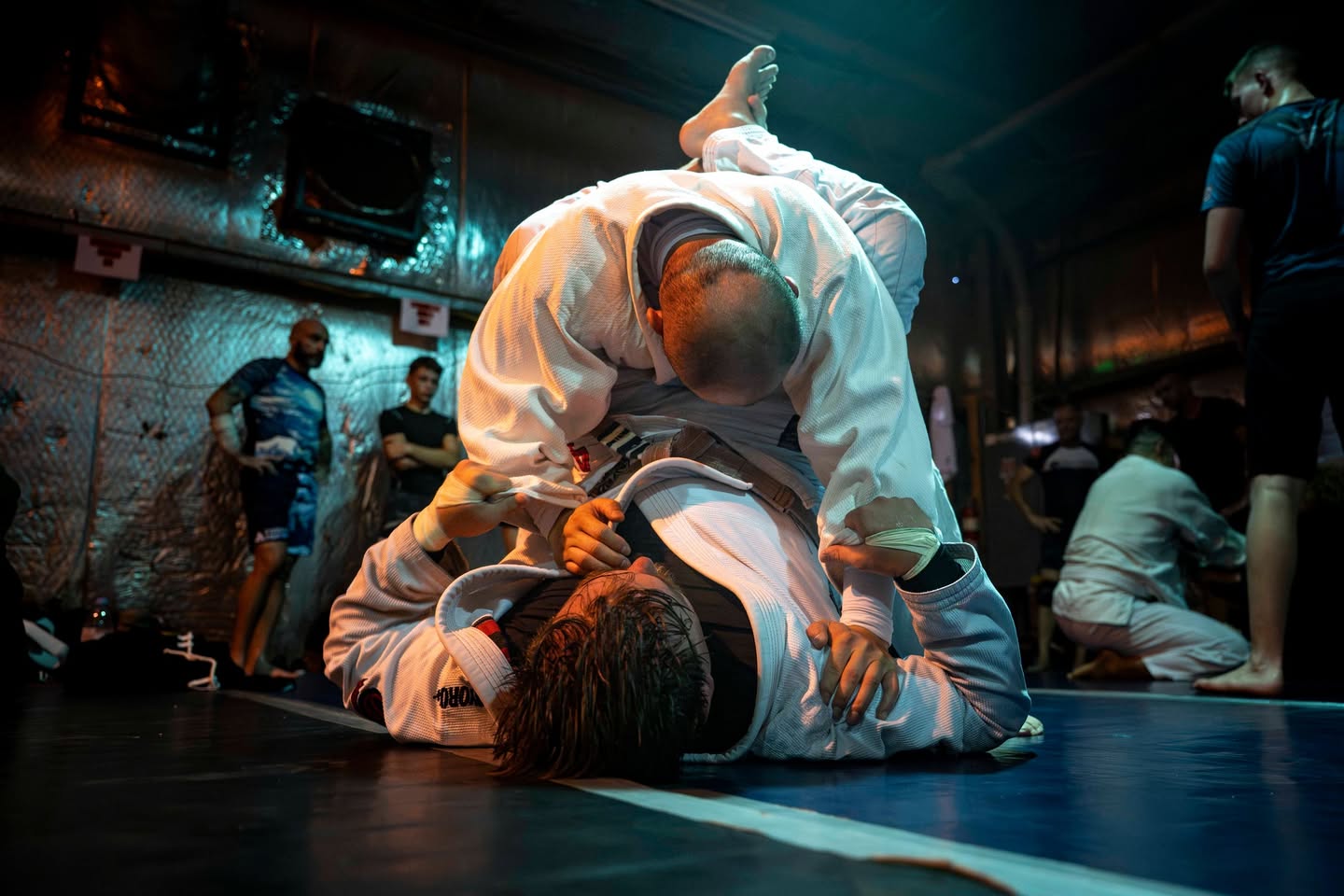-and-
Joint martial arts training provides friendly competition, essential to camaraderie-building and enhances collaboration with ally and partner forces.
Source: Combined Joint Task Force-Horn of Africa (via Facebook)
Photos: Courtesy
Recently, CJTF-HOA personnel participated in a joint jiu-jitsu training between U.S., French & Japanese service members at Camp Lemonnier Djibouti.

Jiu-jitsu is a martial art and combat sport that uses leverage and self-defense techniques to take down an opponent, focusing on ground fighting, striking and grappling.
Related: New Mexico National Guard holds to Yellow Ribbon farewell ceremonies
Joint martial arts training provides friendly competition, essential to camaraderie-building and enhances collaboration with ally and partner forces. The interoperability built through this type of training ensures cooperation necessary for building host nation capacity, while also maintaining stability in the region.








Africom Strategy Focuses on Burden Sharing, Protecting U.S. Homeland
By David Vergun
U.S. Africa Command’s approach aligns with the National Defense Strategy and guidance from Defense Secretary Pete Hegseth, said Africom’s commander, Marine Corps Gen. Michael Langley, during an interview yesterday at the Pentagon.
That approach, he said, prioritizes counterterrorism, and in particular, terrorists who have a propensity to attack the U.S. homeland.

His second priority is countering China’s military encroachment on the continent, noting that there are many shared interests globally on the continent of Africa, with like-minded nations having mutual goals with the United States.
Langley said that while the security and stability mission will be African-led and, to a degree, U.S.-enabled, “We need to do a sharing of the burden in providing stability and security on the African continent with our African partners as well as allies.”
The commander encourages African nations to assist one another, both bilaterally and multilaterally, in combating the growing terrorist threat. Nations across the Maghreb in northern Africa are of particular concern to allies and partners due to mass migration and terrorism.
Protecting strategic choke points is vital for global trade and freedom of navigation, Langley said. These include the Strait of Gibraltar, the Mediterranean Sea area between Sicily, Tunisia and Libya, the Suez Canal and the Bab el-Mandab Strait.
He said the National Guard State Partnership Program is especially helpful to Africom. The program, which began in 1993, aligns U.S. states with African nations. Globally, the guard partners with 60% of the world’s nations to foster trust, build capacity and increase resilience, thereby strengthening national security and U.S. interests abroad.
“There’s nothing that compares to the State Partnership Program,” he said. “They’re building institutional capacity across African countries and deepening partnerships through training and exercises. Competitors can’t match that.”
Langley added that there are nations not in that program who want to be, so he expects it to expand.
Despite successes in some parts of Africa, he said other parts are concerning, noting the conflicts and terrorist activities in Sudan, the Democratic Republic of Congo, Mozambique, Somalia and other nations across the Sahel.
Langley stated that diplomacy is key in resolving these issues, and the Southern African Development Community, along with other African entities, is actively participating in these efforts.





